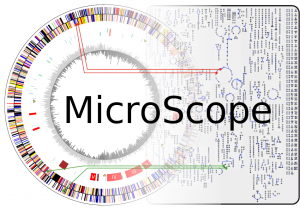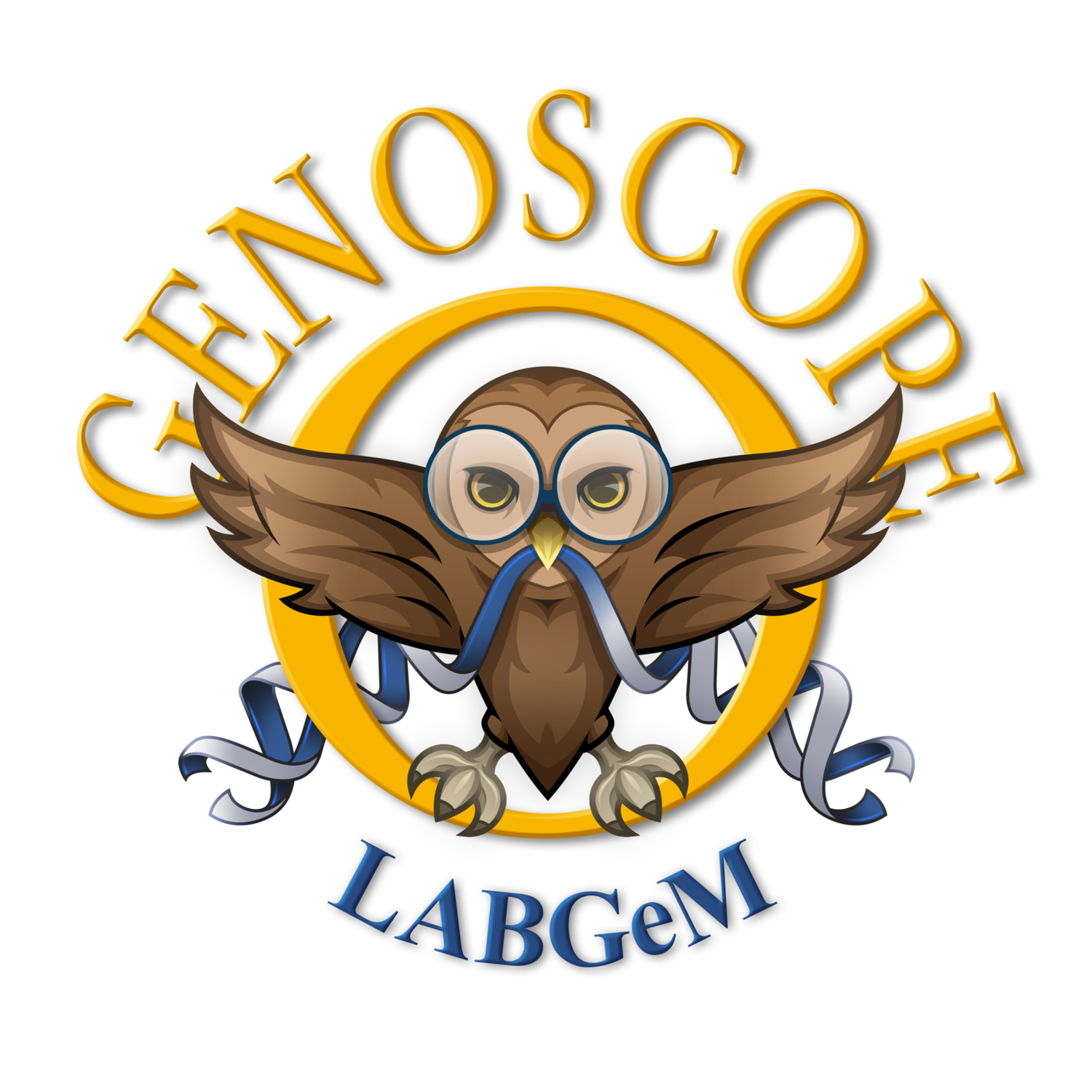 The MicroScope platform is an integrative resource that supports systematic and efficient revision of microbial genome annotation, data management and comparative analysis. Starting from the results of our syntactic, functional and relational annotation pipelines, MicroScope provides an integrated environment for the expert annotation and comparative analysis of prokaryotic genomes. It combines tools and graphical interfaces to analyze genomes and to perform the manual curation of gene function in a comparative genomics and metabolic context. The resource provides data from completed and ongoing genome projects together with post-genomic experiments (i.e. transcriptomics, re-sequencing of evolved strains, mutant collections) allowing users to improve the understanding of gene functions.
The MicroScope platform is an integrative resource that supports systematic and efficient revision of microbial genome annotation, data management and comparative analysis. Starting from the results of our syntactic, functional and relational annotation pipelines, MicroScope provides an integrated environment for the expert annotation and comparative analysis of prokaryotic genomes. It combines tools and graphical interfaces to analyze genomes and to perform the manual curation of gene function in a comparative genomics and metabolic context. The resource provides data from completed and ongoing genome projects together with post-genomic experiments (i.e. transcriptomics, re-sequencing of evolved strains, mutant collections) allowing users to improve the understanding of gene functions.
The MicroScope platform is constantly evolving both in terms of data content and of new analysis tools some of them being developed in the context of our research projects.
Last news about MicroScope:
Software updates and associated calculations for all genomes have been implemented in this version, including: -- dbCAN3 & run_dbcan 5.1.2. For more details, see our post : Enhanced CAZyme Annotation in MicroScope -- Interproscan/5.75.106.0 We have also updated all calculations against UniprotKB. The updated results are available in the Genomic ...

The carbohydrate-active enzyme (CAZyme) prediction tool has been updated for dbCAN3 & run_dbcan 5.2.1 on the MicroScope platform. The tool continues to use DIAMOND (for sequence comparison against the CAZy database) and HMM (for comparison against CAZy families HMM profiles) but Hotpep has been replaced by dbCAN-sub. dbCAN-sub is a ...
Version 3.18.0 of the platform is now available. This release upgrades the MicroScope codebase to ensure compatibility with a newer web server environment offering enhanced capabilities. Please report us any bugs you may meet ...
Version 3.17.5 of the platform is now available. This version includes an update of the ‘genome overview’ page which features:- the updated calculations for GTDBtk according to release R220.- the updated calculations for CheckM according to version 1.2.3, and CheckM2/1.1.0 calculations have been added.Genome clustering now uses both versions of CheckM ...
Version 3.17.3 of the platform is now available. It covers : improved functionalities for internal administration of services an update of the charter to include in the acknowledgements of your publications the MUDIS4LS project (ANR 21-ESRE-0048). This project will fund part of the MicroScope platform's IT equipment and additional staff ...
Dear MicroScope Platform Users, We would like to inform you of a problem that has arisen with the Phigaro tool calculations on genomes. We have since resolved the issue and completed the necessary recalculations. You will now find the updated results in the 'Comparative Genomic' tab in the 'Prophage & ...
The version 3.17.2 of the platform is now deployed: The CRISPR and Cas genes detection tool CRISPRCasFinder has been updated to version 4.3.2 (https://github.com/dcouvin/CRISPRCasFinder/). This version uses Muscle version 5.1.0 (http://www.drive5.com/muscle/) and Vmatch version 2.3.1 (http://vmatch.de/) to detect CRISPR arrays. We also corrected a few bugs Please report us any ...
Dear MicroScope users, MicroScope will be off-line from Friday May 24th 5pm CEST to Monday May 27th around 8am CEST. This interruption is necessary to maintain the air conditioning system of our IT infrastructure. Services opened the week before might take a little longer than usual to deliver but should ...
The version 3.17.1 of the platform is now deployed: The macromolecular systems detection tool MacSyFinder has been updated to version 2.1.2 (Néron et al., 2023). The systems detection method has been significantly improved in this version. Moreover, we now detect a wide range of secretion and conjugative systems, which are ...
Dear MicroScope users, Due to a maintenance operation, Microscope will be unavailable for approximately 2 hours on Wednesday 17 April from 6am UTC . We apologise for any inconvenience caused. The LABGeM Team ...
 The MicroScope platform is an integrative resource that supports systematic and efficient revision of microbial genome annotation, data management and comparative analysis. Starting from the results of our syntactic, functional and relational annotation pipelines, MicroScope provides an integrated environment for the expert annotation and comparative analysis of prokaryotic genomes. It combines tools and graphical interfaces to analyze genomes and to perform the manual curation of gene function in a comparative genomics and metabolic context. The resource provides data from completed and ongoing genome projects together with post-genomic experiments (i.e. transcriptomics, re-sequencing of evolved strains, mutant collections) allowing users to improve the understanding of gene functions.
The MicroScope platform is an integrative resource that supports systematic and efficient revision of microbial genome annotation, data management and comparative analysis. Starting from the results of our syntactic, functional and relational annotation pipelines, MicroScope provides an integrated environment for the expert annotation and comparative analysis of prokaryotic genomes. It combines tools and graphical interfaces to analyze genomes and to perform the manual curation of gene function in a comparative genomics and metabolic context. The resource provides data from completed and ongoing genome projects together with post-genomic experiments (i.e. transcriptomics, re-sequencing of evolved strains, mutant collections) allowing users to improve the understanding of gene functions.
